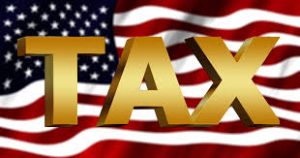Summary
The Congress passed a reform in the tax legislation that has necessary changes that will influence employer-sponsored benefit programs like transportation benefits as well as moving expenses reimbursements. A new tax credit for employers who reimburse paid family and medical leave for their employees.
In Depth
The tax reform passed by the Congress is the last version one of several proposals, it brings some tax Cuts and Job act. Hosting some essential changes to the taxation of employer-sponsored benefits of transportation programs. There is a new restriction on the employers permitted the option to deduct the reimbursement of some ordinary business spending, like meals, entertainment, and transportation of employees. New tax credit for employer-sponsored benefit programs, the employer that provide family and medical leave to their employees. In this article, we will review some of the changes in the taxation of new tax law.

Family leave with a paycheck
Forbes The New 2018 Federal Income Tax Brackets & Rates
Qualified Transportation Fringe Benefits
Employer-sponsored programs like fringe benefit related to transportation program that provides the employee’s payments for parking or different transportation to work. Deduction associated with the majority of the expenses related to qualified transportation programs were repealed. The new law kept some of the employer deductions; Employees safety expenses and reimbursing travel expenses back and forth to work.
The new law may be sufficiently boarded to let employers chose to contribute pre-tax money to a The new law may be adequately board, making employers decided to contribute pre-tax money to a fringe benefit transportation program. Fringe benefit transportation program.
“expenses”
The term “expenses” as used by the new law is laking clear interpretation by the IRS, missing clear understanding of this term could affect taxable employees the loss of opportunity to rightful dedication. Tax-exempt entities could have a significant effect on the way “expenses” will be defined.
Tax-exempt entities may get itself into a situation of unrelated business taxable income (UBTI). When a Tax-exempt entity lets employees use a pre-tax base for paying transportation this entity triggers a (UBTI). A possible big issue!
Things can be more complicated with this issue with the local laws of some cities and states where employees need to have qualified transportation fringe benefit programs. The employee’s ability to exclude part of the transportation fringes they are gaining, it is not prohibited by the new act. Additionally, Setting aside money on a pre-tax basis is yet permitted for some qualified transportation expenses, naturally if an employer has this kind of program.
Qualified Moving Expense changes
The tax reimbursement for Employers expenses in favor of employee’s moving expenses was discontinued by the new law. The new law prohibits employees to deduct moving expenses that did not come from the employers reimbursing. As a result of it, there will be no tax benefits in case of a relocation of an employee, no meter who pay the relocations trip and transport. This regulation takes effect on January 1, 2018.
Active duty members of the military that move by military orders are excluded and will be treat by the old law. At 2026, the act about moving expenses will be reverted.

Commuting? On payroll or tax money?
Refund Timing for Earned Income Tax Credit and Additional Child Tax Credit Filers
Employee awards for Special Achievement and the new act.
Before the tax law reform, employers were allowed to give tax-free awards to employees for their achievements. This type of award is considered “tangible personal property” and is not part of income. The new law changed this exception taking out of being “tangible personal property” any cash or cash-valued awards. That is a ward of the favorable tax reimbursement for Employers’ expenses. The new law discontinued all this in favor of employees’ moving expenses. The new law prohibits employees from deducting moving expenses that did not come from the employer’s reimbursement.
As a result, there will be no tax benefits in case of a relocation of an employee, and no meter who pays for the relocation trip and transport. This regulation takes effect on January 1, 2018. The new law discontinued the favorable tax reimbursement for Employers’ expenses in favor of employees’ moving expenses. The new law prohibits employees from deducting moving expenses that did not come from the employer’s reimbursement. As a result, there will be no tax benefits in case of a relocation of an employee, and no meter who pays for the relocation trip and transport. The law takes effect on January 1, 2018. The law excludes $1600 A year or $400 per case if the awards are Vacations, meals, or similar activities.
 Here you make your low-cost Paystubs.
Here you make your low-cost Paystubs.
Paid Family and Medical Leave on the new act.
Section 45S was added to the federal tax law in favor of the use of family and medical leaves. The new section permits employers to ask for a business tax credit for the amounts paid while the employee was on family and medical leave. For the employers to qualify for business tax credit, an annual written program must be established; this program has to provide full-time workers at list two weeks per year of family leave and medical leave. Part-time employees have to have days equivalently for this kind of leave. Qualified employers that during a leave pay not less than the 50% of the regular salary may claim the credit of 12.5% of the wage paid for family and medical leave per year, up to 12 weeks a year. The credit can increase up to 25% when leave payment is higher than 50%.The new credit is starting to be effective on January 1, 2018.

Going to work though not on payroll money.
Entertainment and Meals changes in the 2018 new act.
Starting at 01-01-2018 the new law terminates the tax deduction by the employer for the majority of entrainments and recreation payments, no matter if it was for the benefit of the business, like the case of giving a good time to a client. A 50% deduction still permitted when paying meals if incurred by the employee on a business-related trip.
Starting 01.01.2018 further change take effect, 50% deduction to add food and beverage that are provided to the employees in his working place or adjacent facilities. A less the expenses are excluded from the employee wages as a minimis fringe benefit according to section 132 of the law. Business owners will not be able to consider operating food facilities expenses as a deduction; this regulation will start at 2026.
Individual Mandate and the Affordable Care Act
The new law revokes the “individual mandate” part of the Affordable Care Act starting on January 1, 2019. (Leaving 2017 and 2018 penalty in effect).

Employers and employees paychecks
Small Business and Self-Employed Tax Center
Conclusion
Congress tax reform passed by the Congress at the end of the year 2017, part of the changes are in effect starting January 1st, 2018, creating an urgent necessity for the employers to review the impact of their employees with relation attentively to benefit programs making sure they are as tax efficient as possible. Reimbursement policies need a careful examination of the implications for deductible expenses by the new act. Tax-exempt organizations are recommended to have a thorough consultation with their advisers about continuing with fringe benefit programs that may create a UBTI and unwanted tax obligations. Above all, we expect the IRS to be helpful with excellent written and on-line guidance.gfxfdx
PAYSTUB MAKER team will be back with more valuable information. bb

